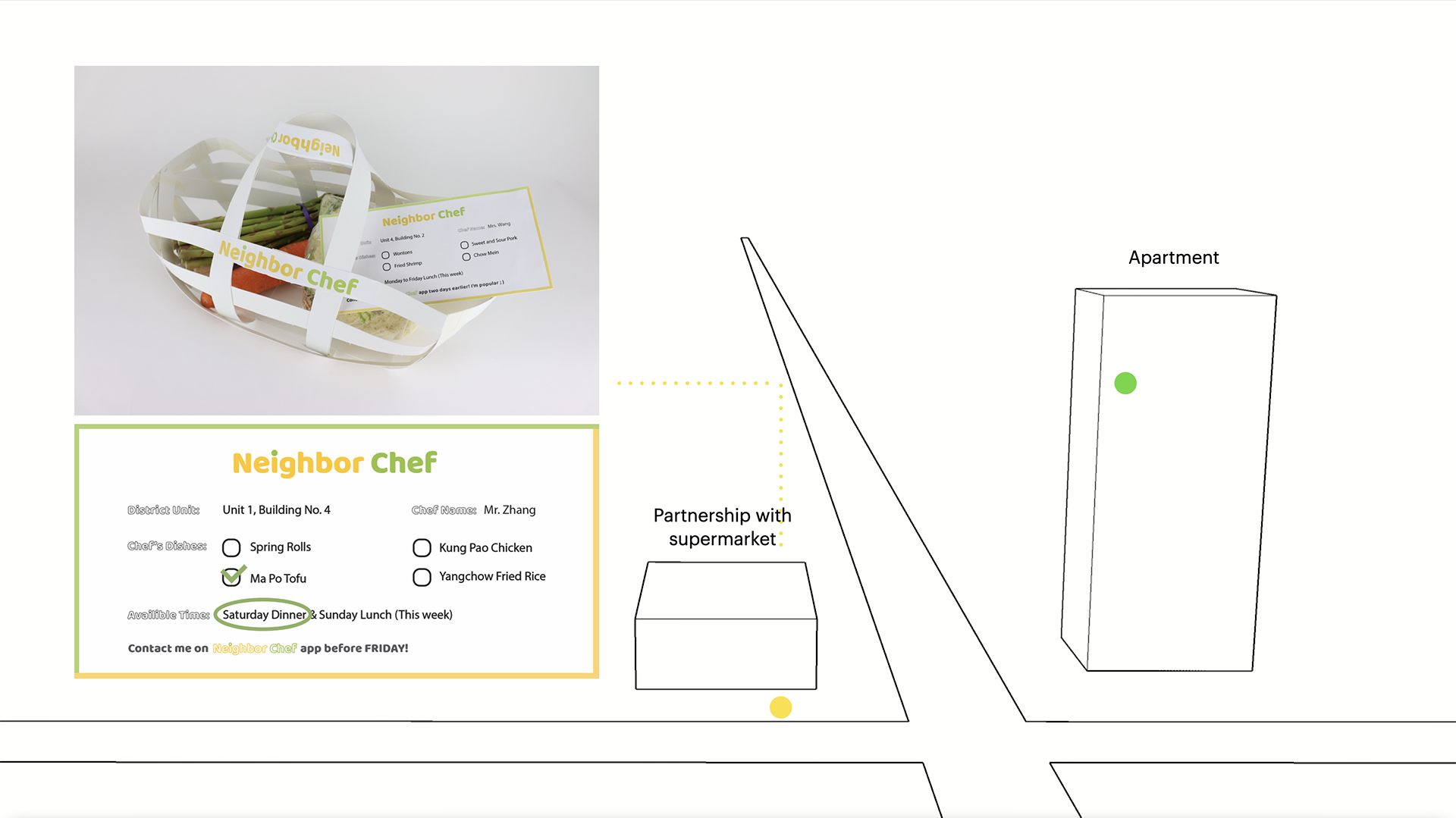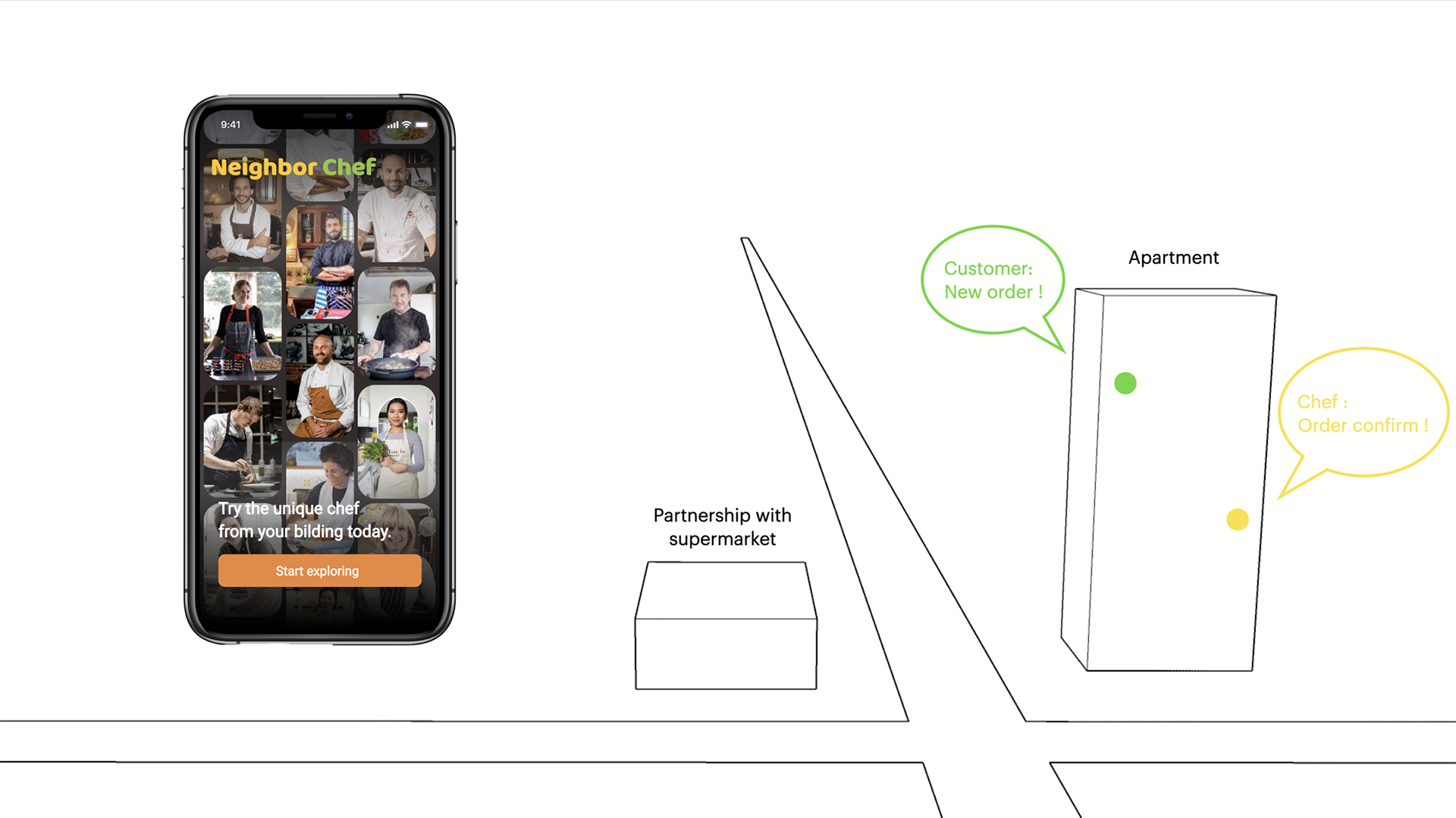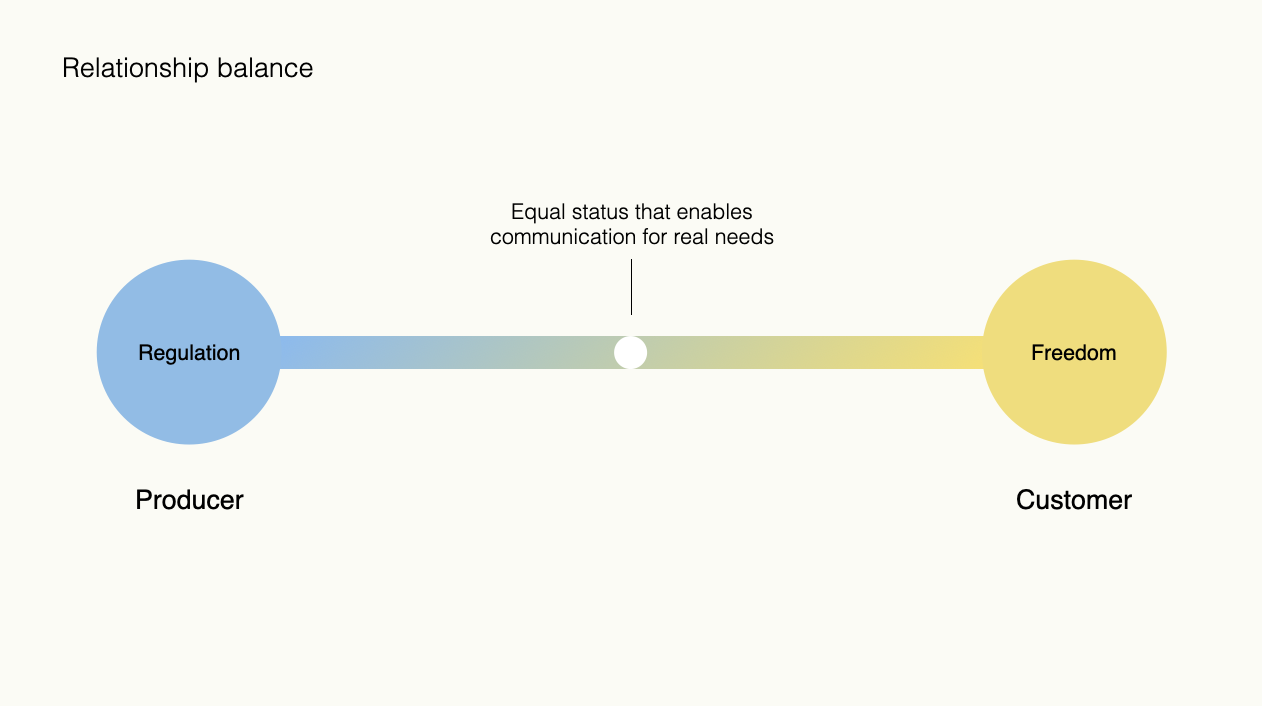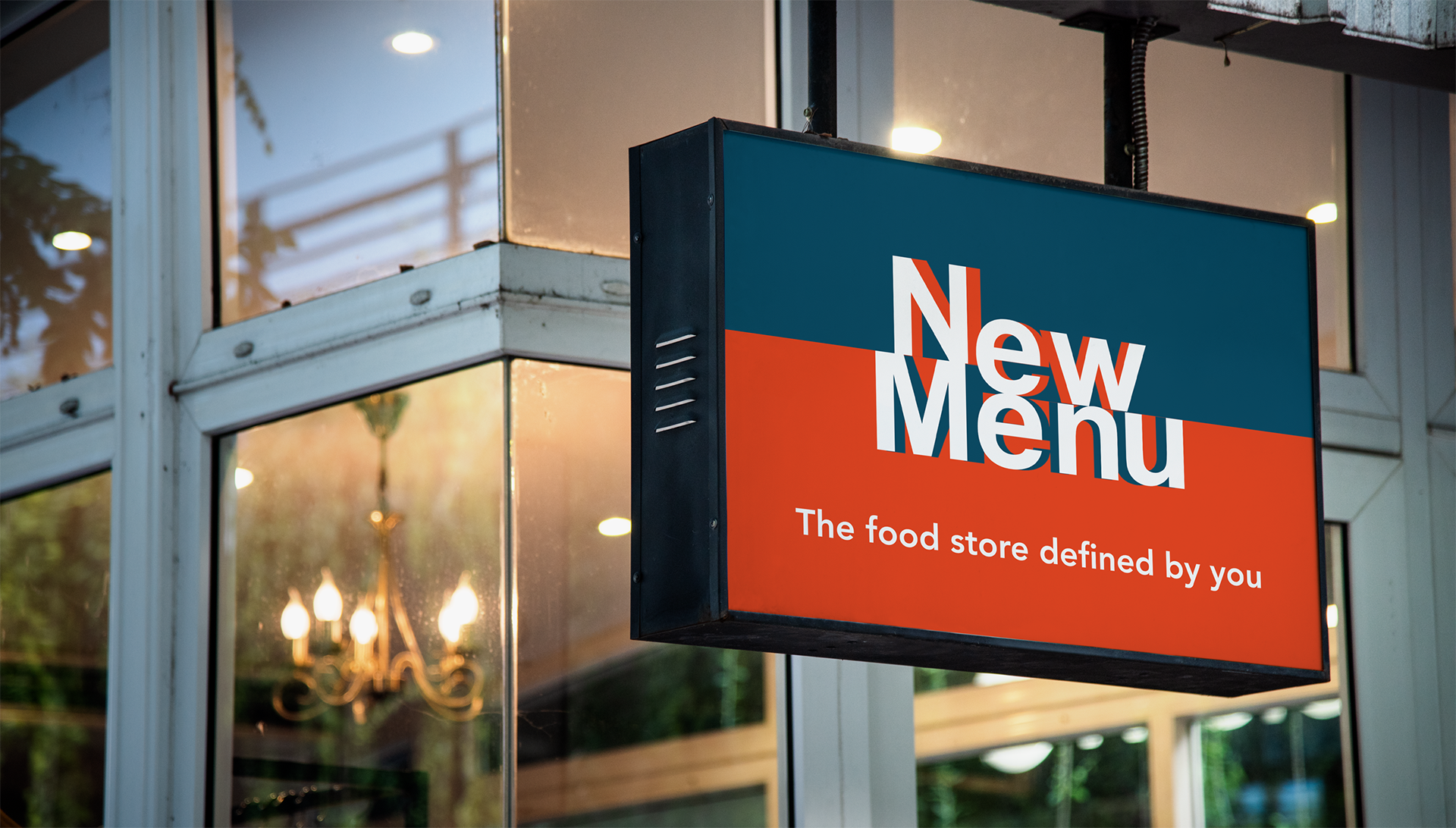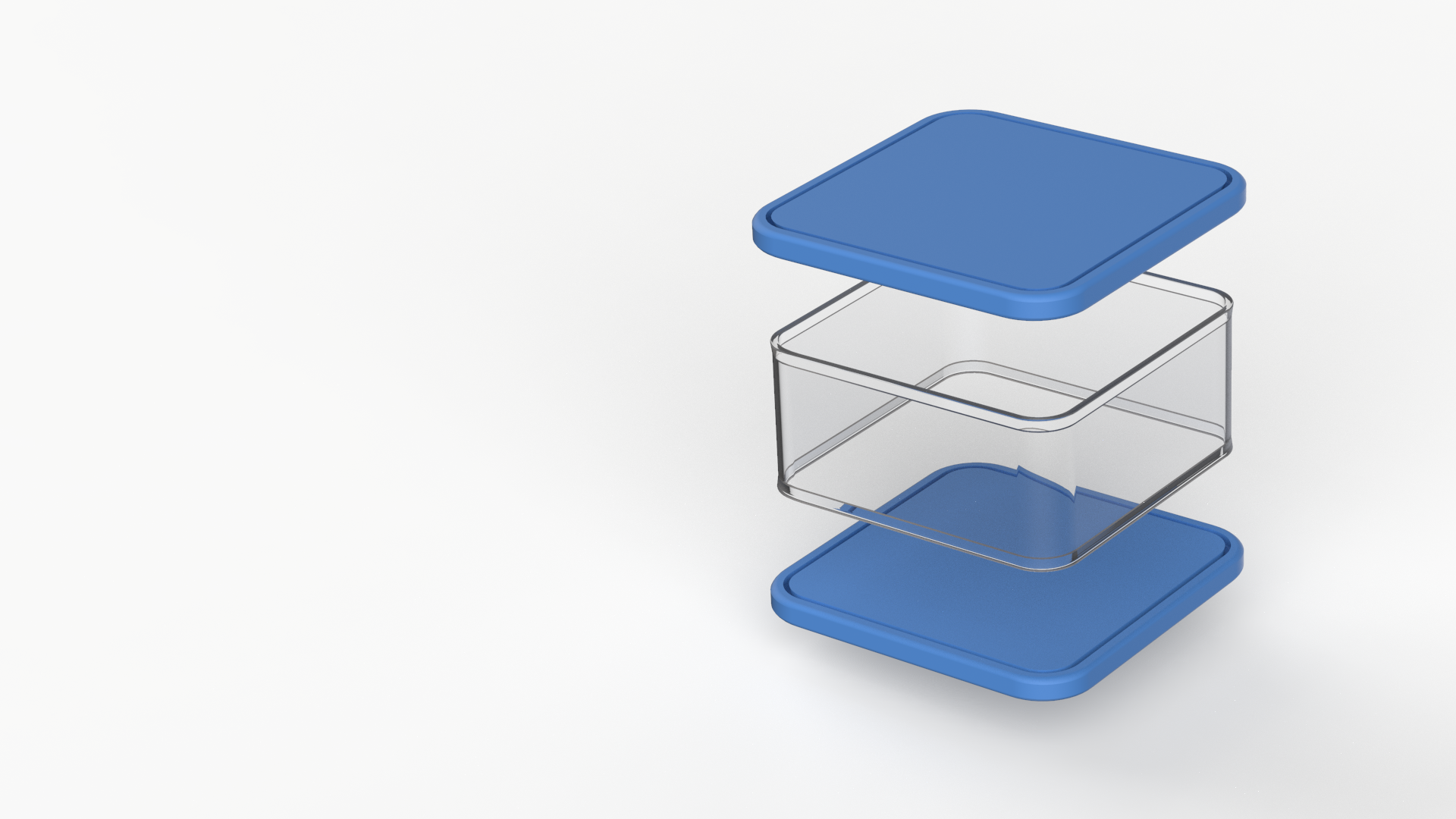Disintermediation and Design: Customers, Producers, and the Platform
Due to the maturity of technologies such as search engines and digital platforms, information transparency is at an all-time high. Whenever an individual has a specific need, he or she can easily search online to locate a provider who can directly fulfill that need rather than go through a middleman. This phenomenon, called disintermediation, is the subject of Yufeng Peng’s thesis. In Disintermediation and Design: Customers, Producers, and the Platform, Yufeng explores this topic from three angles: career planning for Chinese students, physical manufacturing, and the food industry. He aims to help consumers fulfill their needs by building collaborative relationships with service providers instead of passively accepting whatever dominant companies and large corporations provide.
“Imagine if everyone could accurately connect with someone capable of meeting both their physical and spiritual needs,” Yufeng asks. “How would this change the relationship between producer and consumer across various industries? Would industries still be profit-oriented and geared toward mass production? Or would this relationship become a collaborative one based on shared value, creating a more transparent and trustworthy process for both customer and producer?”
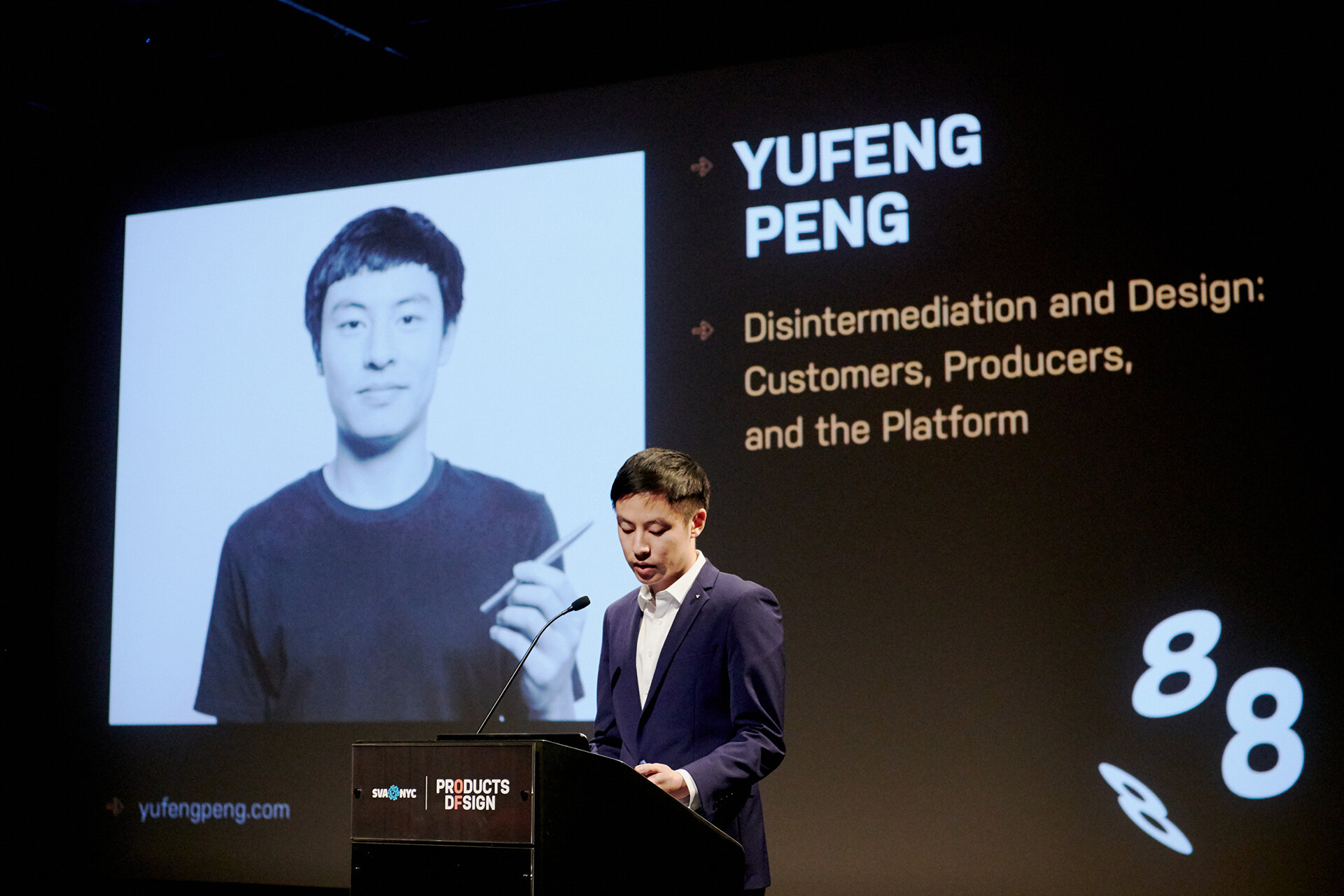
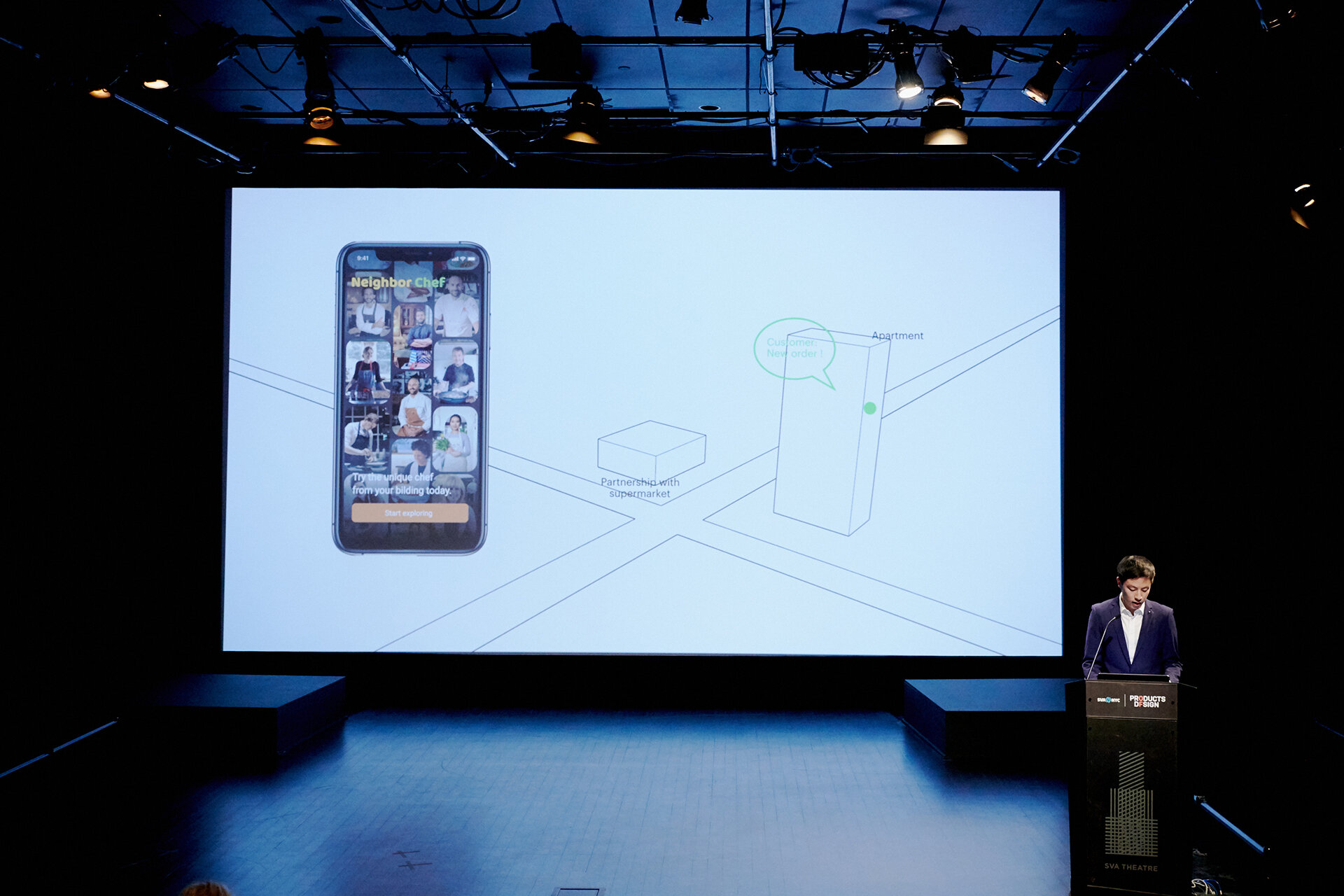
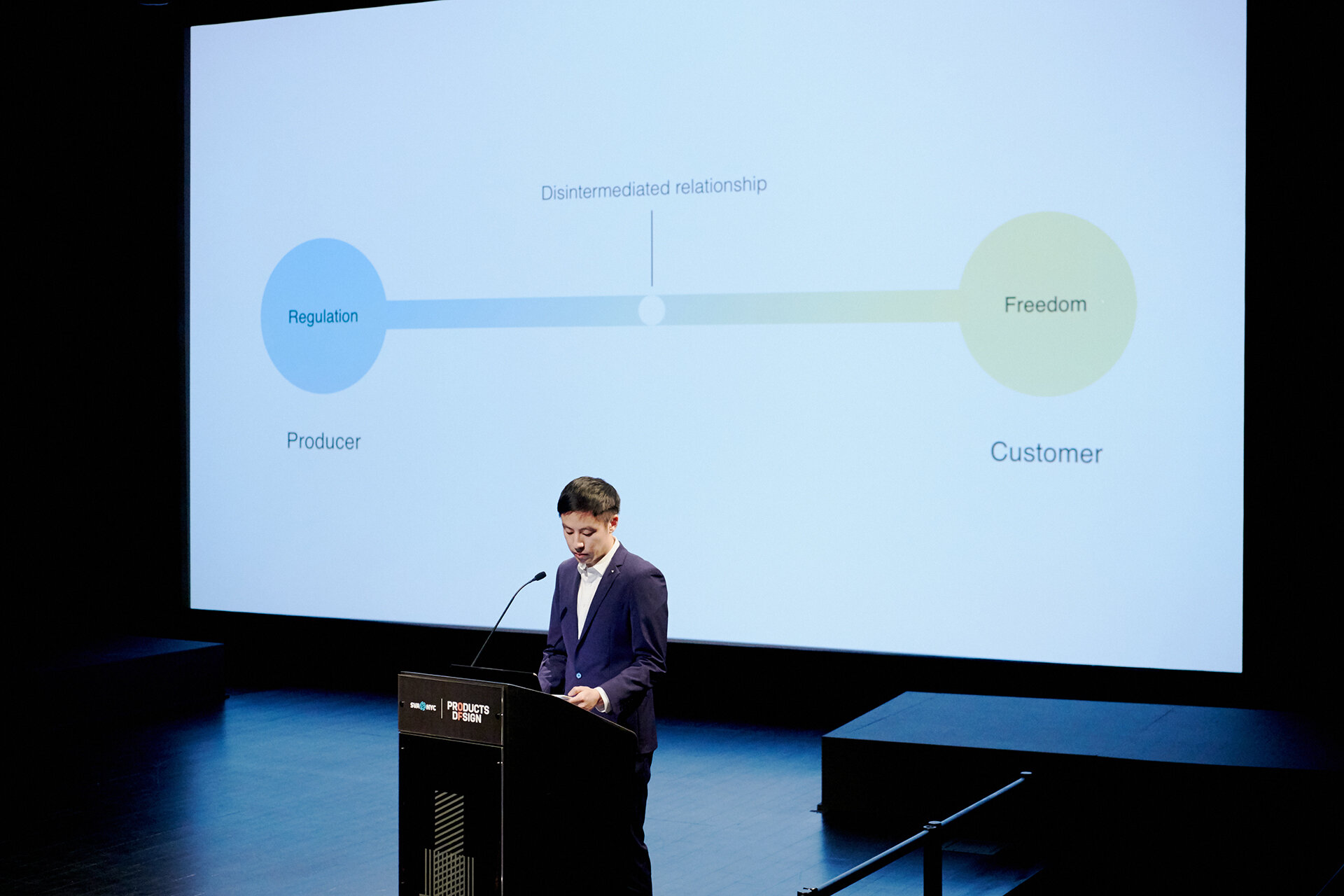
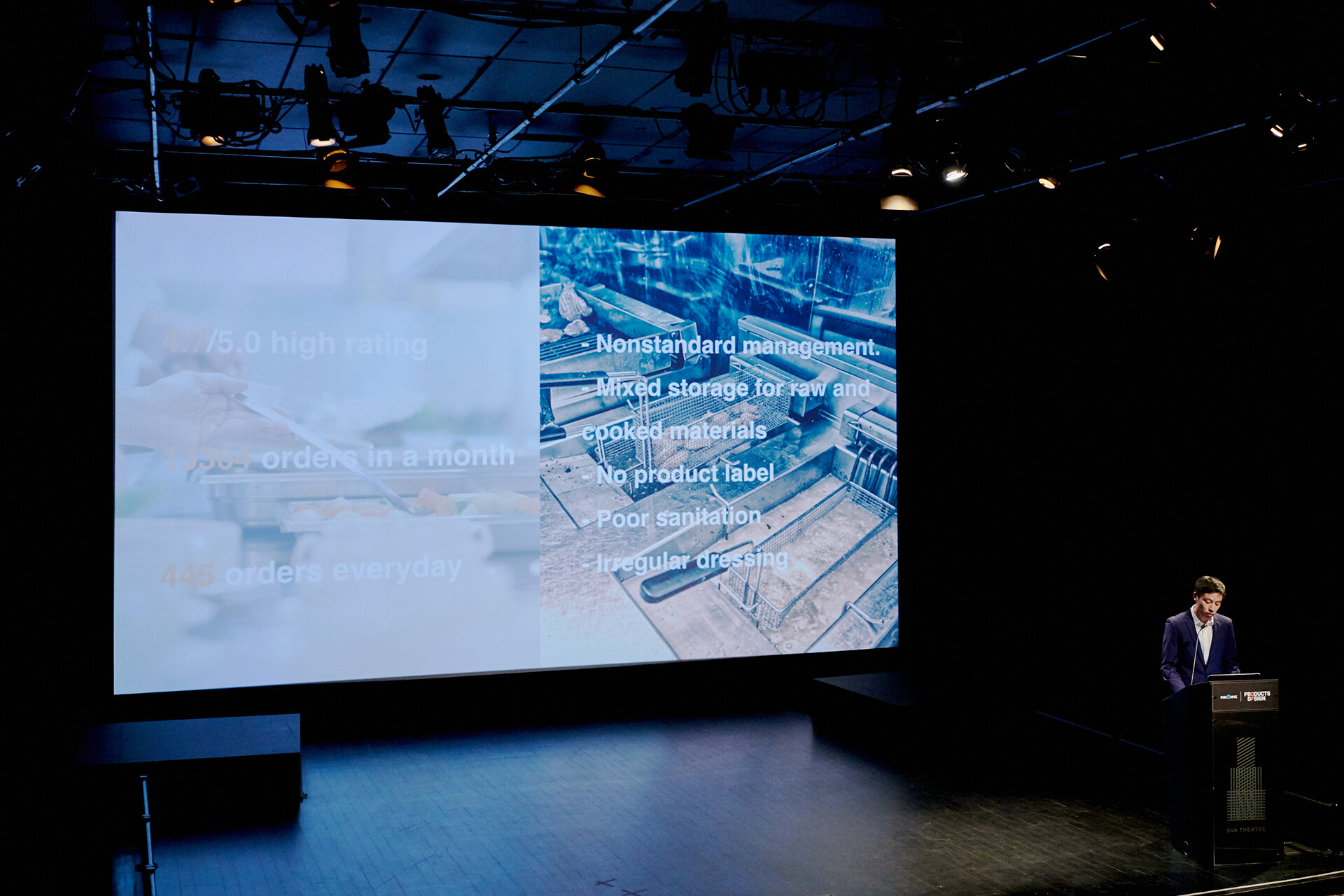
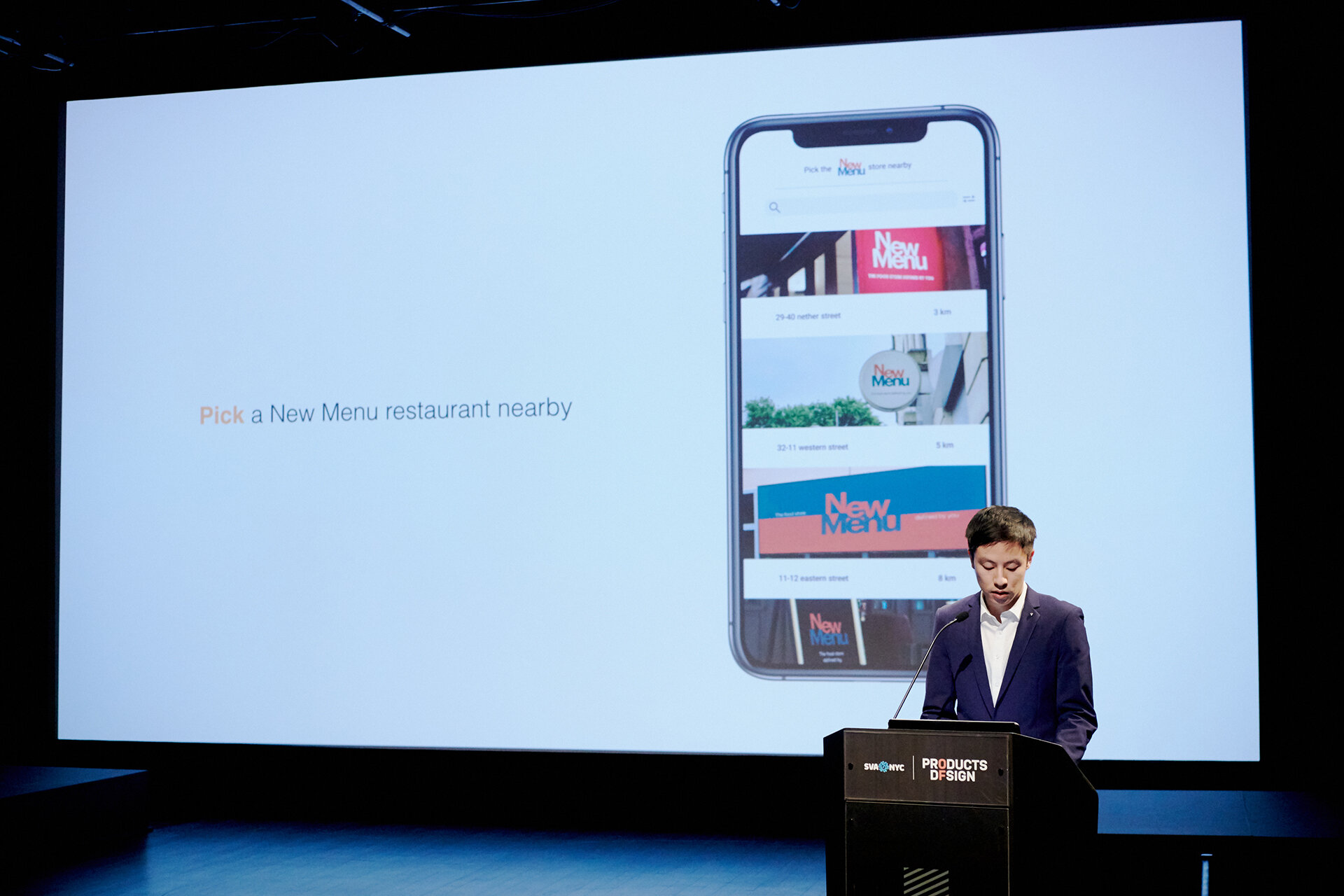
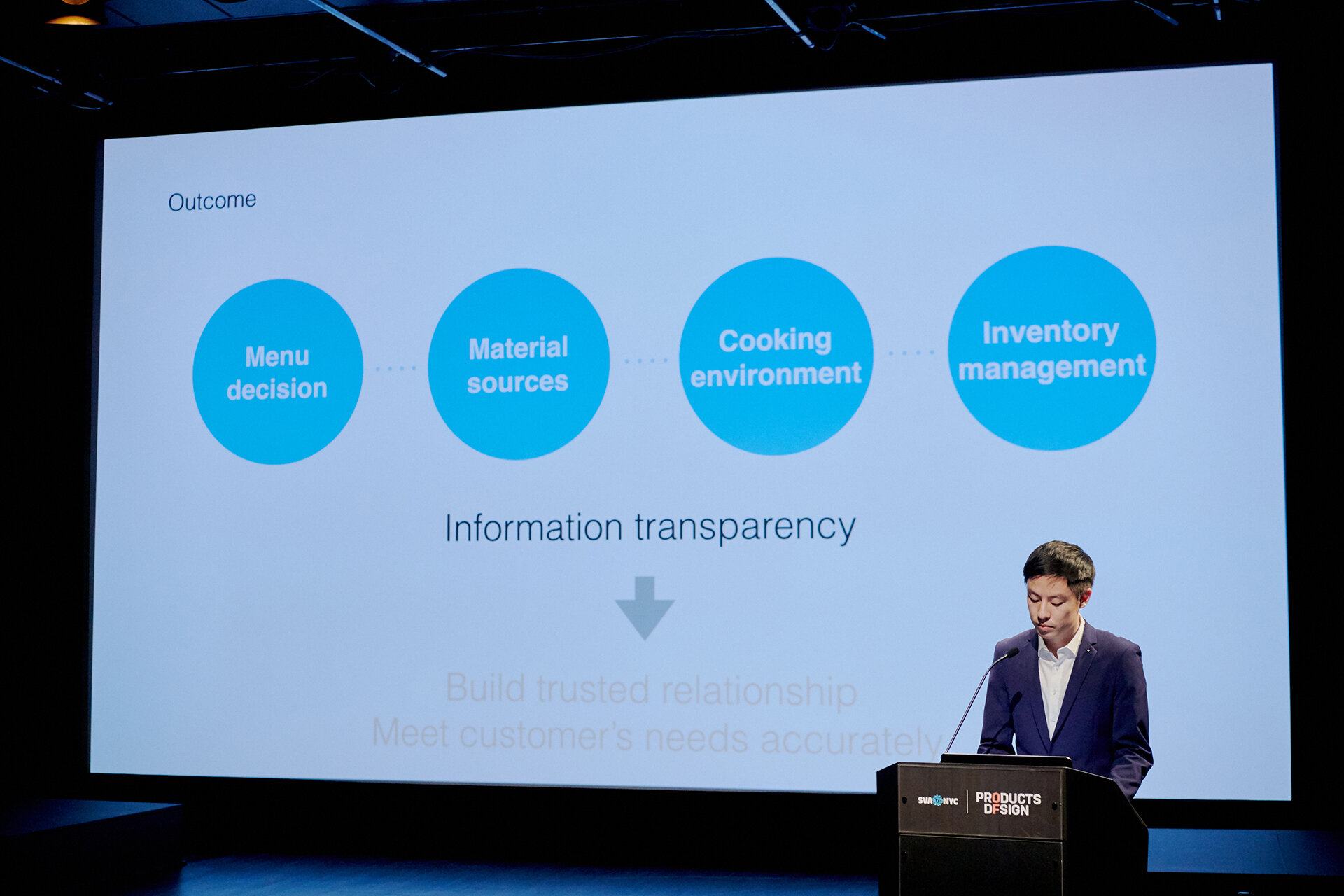
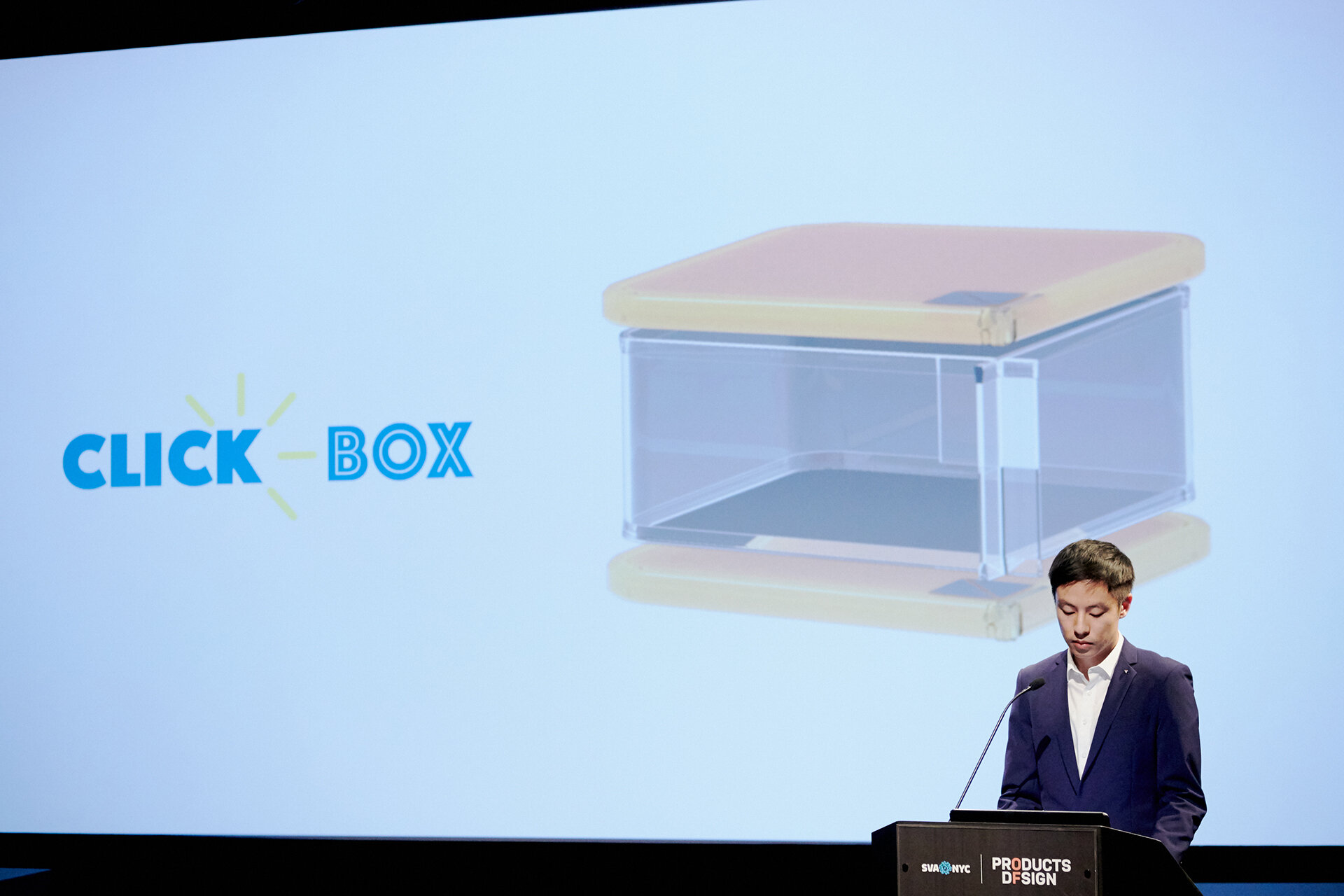
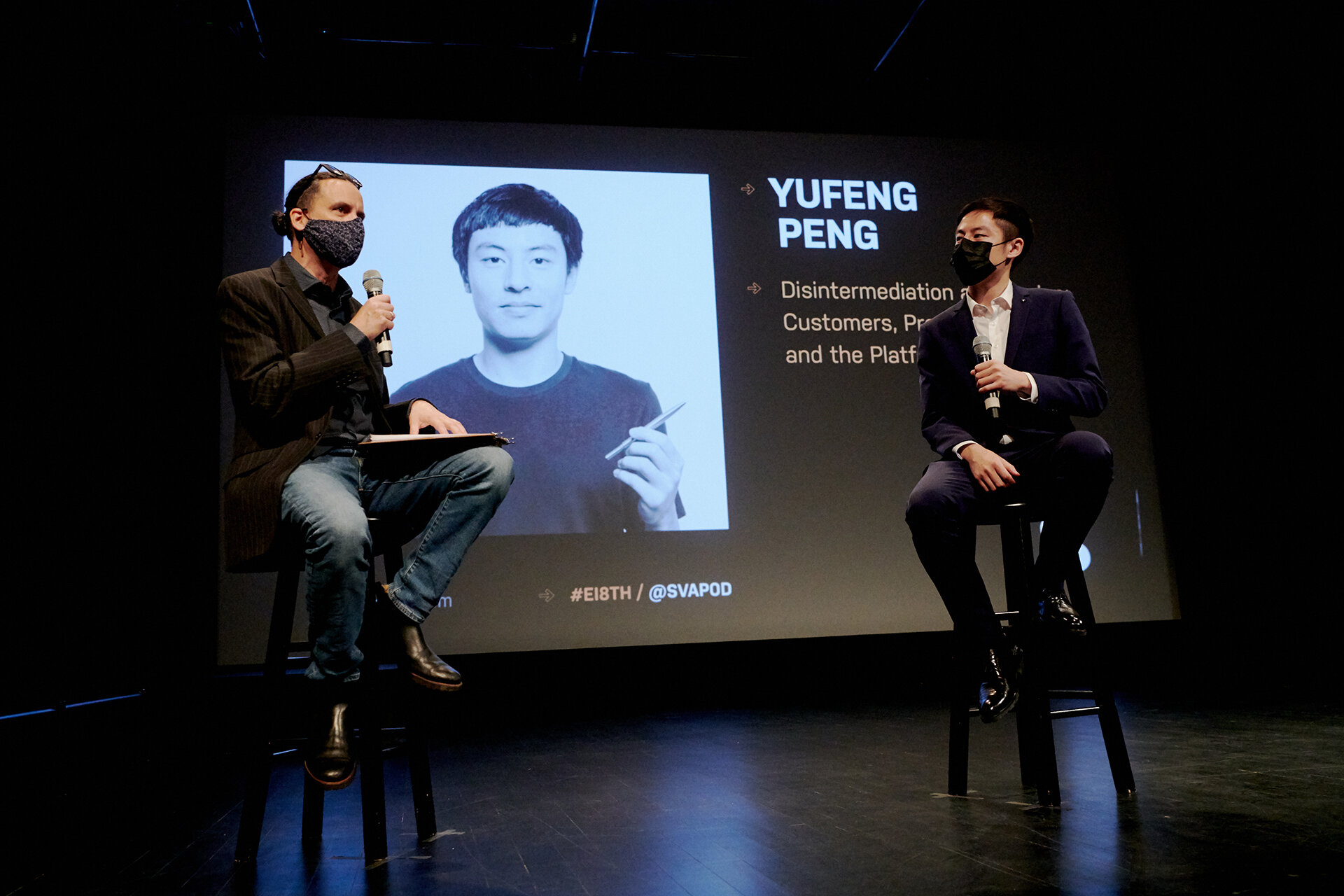
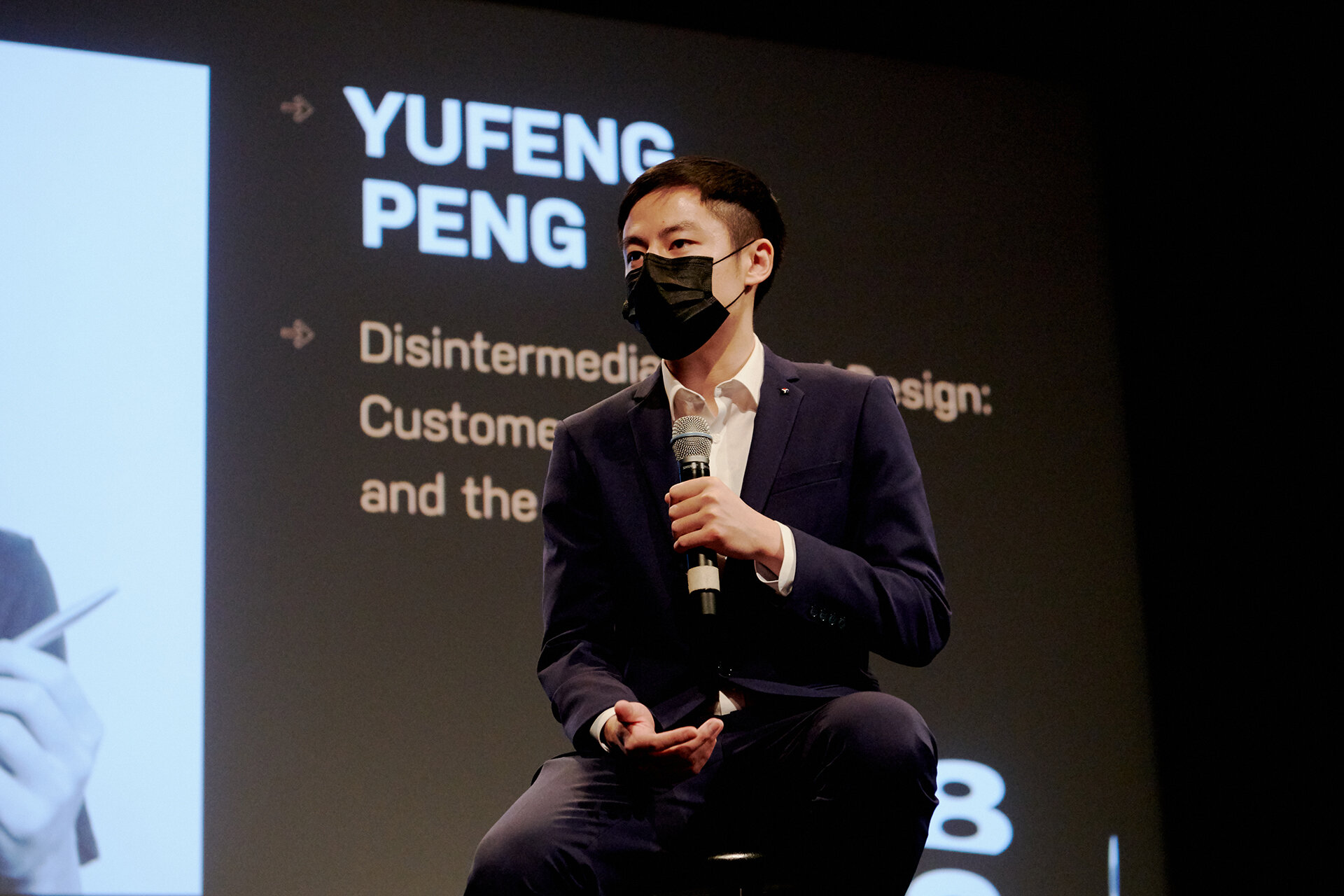
Yufeng chose these three industries—education, manufacturing and food production—because of their roles in the intermediation process. School, in a way, is the intermediation between a student and society, aiming to enable the student to find a job. However, in reality, many education organizations in China exist just to serve a fixed goal, such as achieving a higher score on a college entrance exam. But it’s enterprises, not education organizations, that know what a student actually needs to learn in order to contribute to society. Why can’t students learn directly from society's enterprises in order to meet concrete, practical goals instead of spending decades learning just to pass exams in schools? Students are the most motivated when they can focus on their interests and on problem-solving; so are they choosing school because it's the best way they can fulfill their goals, or because there are no other options?
The lack of options for the consumer extends to physical products as well. Customers are often stripped of their freedom of choice and provided with whatever is profitable for a company. Likewise, what a restaurant offers customers is not always determined by customers’ real needs but instead by the restaurant’s own business strategy, which is still one-sided service. Yufeng’s thesis asks: When the costs of design and production are low enough to meet the specific needs of different groups, can customers exercise a real choice over what they are provided? And regarding education, do students have other career paths outside of school? The answer might be found in the disintermediation relationship between the customer and producer.
Neighbor Chef
Neighbor Chef is a peer-to-peer take-away food service provided by a neighbor from the same building. This service was generated from Yufeng’s experience during the COVID-19 pandemic and subsequent quarantine. As restaurants transferred their dine-in service to take-away food, more and more people ordered in or cooked at home. However, Yufeng noticed that there was a lack of regulation at this individual level of food production, regarding, for example, food sources and cooking environment, which led to the iteration of this service.
The Second Floor Public Cooking Space
Next, Yufeng designed the Second Floor Public Cooking Space. The aim of this project is to unify management by collaborating with and providing regulation through apartments, providing convenience and efficiency for both the customer and producer. At the same time, this system still guarantees enough freedom for their value exchange in the process.
There are several reasons to scale up Neighbor Chef with third-party regulation:
Increases the efficiency.
Unifies management of food sources and cooking environment.
Reduces the cost for service provider and customer.
Provides a clear location for pickup.
Eliminates the need for food production licenses for individuals.
New Menu
New Menu is a restaurant chain whose menu changes monthly based on the requirements of nearby communities. This information transparency allows customers to build trusted relationships with restaurants. Traditional restaurants provide options based on what is profitable instead of encouraging close customer communication and catering to customers' needs. New Menu turns this one-sided service into a more equal and collaborative relationship for both the restaurant and customer to meet each other’s needs accurately. It can benefit different target groups based on its location, for example, office workers in the business district and the students in the school district.
Click Box
Click Box is a reusable take-away food container service for the restaurant and community food services mentioned above. The container can be disassembled into a flat object to fit into designated collection bins in apartment lobbies. After delivering orders, a delivery person can collect used containers easily, and then return them to restaurants when taking the next order. Restaurants will be motivated to participate because they can choose a subscription service without purchasing the containers themselves. For customers, each food order includes a deposit to motivate them to return the container in time.
To learn more about Yufeng Peng’s work, take a look at his projects in more detail at yufengpeng.com.













